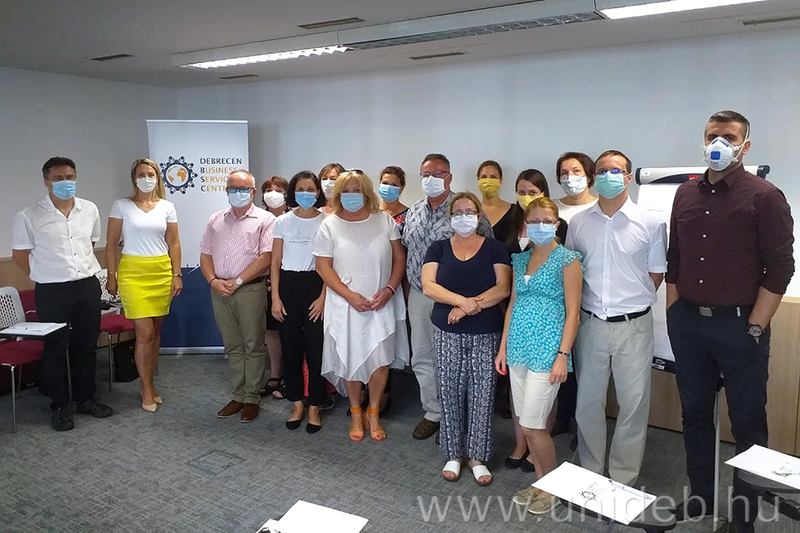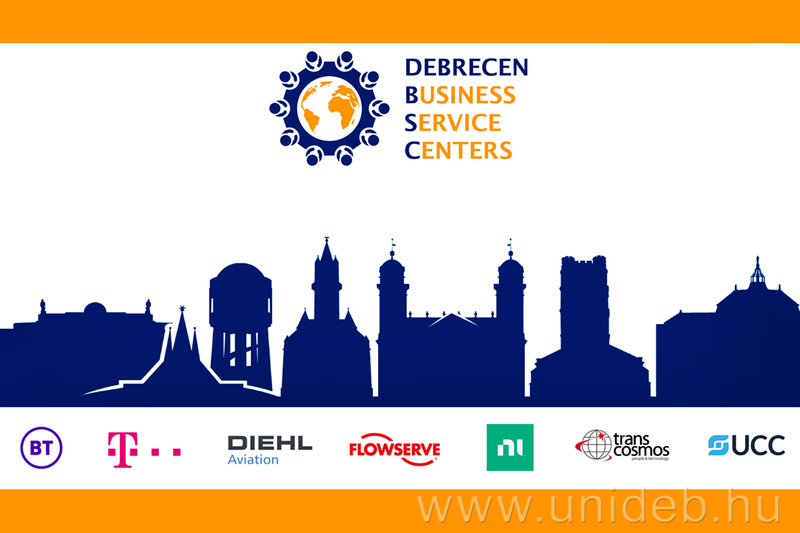High-school teachers learned about local multinational companies and workplace environment in the service sector at a workshop organised jointly by the University of Debrecen and the Debrecen BSC roundtable.
The University of the Debrecen and the Debrecen BSC roundtable organised a 2-day workshop, where teachers were provided with information on a novel topic. On 24 and 25 August, participants learned about how international companies work, the newest technologies, and the most important competencies that young job-seekers are expected to have.

The Debrecen BSC roundtable was launched by seven companies: BT, DT ITS, DIEHL Aviation, Flowserve, NI, Transcosmos and UCC, in order to support Debrecen and local schools.
Péter Csatár, vice dean for business and strategy of the Faculty of Humanities at UD said that even though young people are interested in the service sector, they do not really know it, and this is why they should be provided with genuine information by their teachers.
- The goal was to equip high-school teachers with first-hand information that they can transfer to their students, who may choose a career in the service industry later. Teachers were informed by company trainers. They heard about expected behaviour in a working environment in the sector, competencies expected in the sector, and conflict management. Teachers also participated in exercises to learn how to communicate online with people from different cultures who speak different native languages. Working in the sector requires a wide range of competencies, including communication skills, the ability to adapt to changes in the online working environment, or the ability to assess quality. Young people can capitalise on this knowledge in various areas, as they may have to work with different applications later, and they can learn to select information coming from different sources – explained vice dean Csatár.
He noted that young employees will soon find out that they will have to do project-based activities. Then they will become aware of their strengths, which may help them build a successful career in the industry within a few years.

The Debrecen BSC roundtable will launch programmes for students of BTK and GTK both in Hungarian and in English in the Autumn semester this year, and they will start French-language programmes to inform students about the service industry next year.
Press Office
The Debrecen BSC roundtable was launched by seven companies: BT, DT ITS, DIEHL Aviation, Flowserve, NI, Transcosmos and UCC, in order to support Debrecen and local schools.
Péter Csatár, vice dean for business and strategy of the Faculty of Humanities at UD said that even though young people are interested in the service sector, they do not really know it, and this is why they should be provided with genuine information by their teachers.
- The goal was to equip high-school teachers with first-hand information that they can transfer to their students, who may choose a career in the service industry later. Teachers were informed by company trainers. They heard about expected behaviour in a working environment in the sector, competencies expected in the sector, and conflict management. Teachers also participated in exercises to learn how to communicate online with people from different cultures who speak different native languages. Working in the sector requires a wide range of competencies, including communication skills, the ability to adapt to changes in the online working environment, or the ability to assess quality. Young people can capitalise on this knowledge in various areas, as they may have to work with different applications later, and they can learn to select information coming from different sources – explained vice dean Csatár.
He noted that young employees will soon find out that they will have to do project-based activities. Then they will become aware of their strengths, which may help them build a successful career in the industry within a few years.
The Debrecen BSC roundtable will launch programmes for students of BTK and GTK both in Hungarian and in English in the Autumn semester this year, and they will start French-language programmes to inform students about the service industry next year.
Press Office
Last update:
2021. 11. 22. 14:17